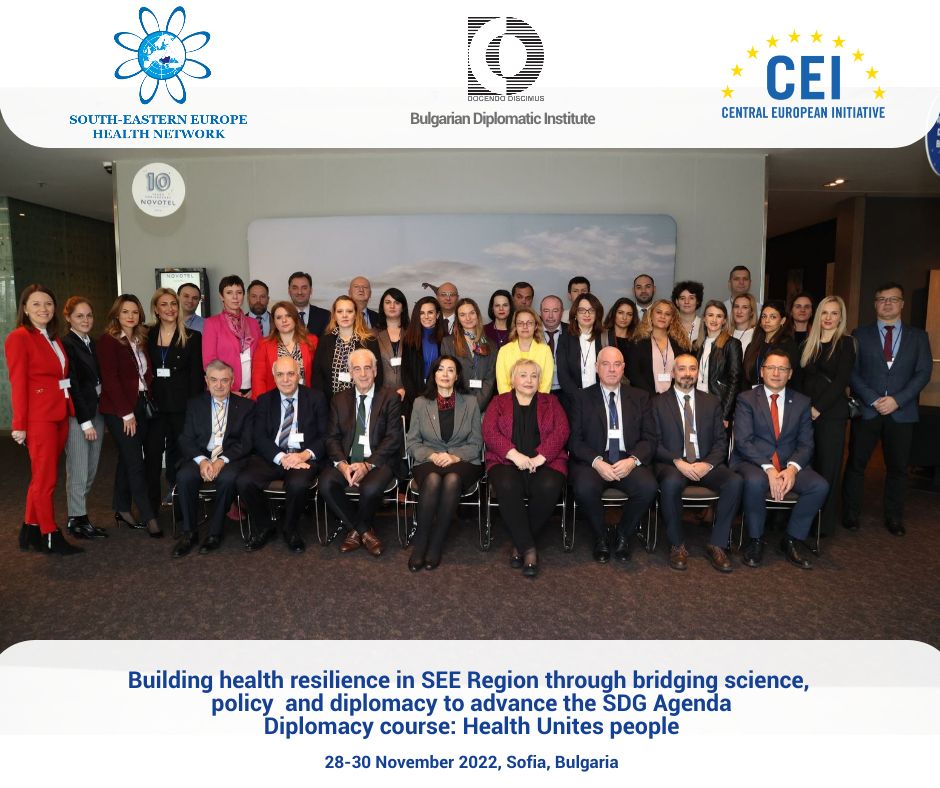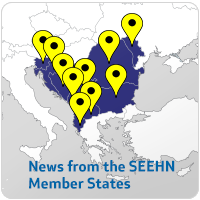
The regional Health Diplomacy Course: Building health resilience in SEE Region through bridging science, policy and diplomacy to advance the SDG Agenda Diplomacy course: Health Unites People, co-organized by SEE Health Network, Ministry of Health of Bulgaria, Bulgarian Diplomatic Institute, co-financed by the Central European Initiative, started on Monday, November 28, 2022, in Sofia, Bulgaria.
The participants of the course were addressed by:
- Prof. Plamen Dimitrov, Director of the Bulgarian National Center of Public Health and Analyses, and Head of the Department of Health Promotion and Disease Prevention at the Center, SEEHN National Health Coordinator Alternate,
- Dr. Mira Jovanovski Dasic, Director, SEEHN Secretariat,
- Mrs. Tanya Mihaylova, Director, Diplomatic Institute to the Ministry of Foreign Affairs of the Republic of Bulgaria,
- Mr. Gian Matteo Apuzzo, PhD, Senior Programme Manager, Focal Point for Health Strategies and Emergencies response, CEI,
- Dr. Skender Syla, WHO Representative and Head of Country Office to Bulgaria.
Recent years have been increasingly challenging, revealing the increased urgency to address global health as a defining pillar of the worldwide architecture and agenda, with global health diplomacy as a defining tool in this process.
However, successful health diplomacy is not only based on public health knowledge and evidence; therefore, building and strengthening core competencies in the theory and practice of diplomacy is a core direction for global and regional health investment.
The health diplomacy course is part of the SEEHN regional activities dedicated to strengthening the capacities of the representatives of its member states to tackle the emerging global health challenges.
The three-day initiative focuses on bridging health policy, science and diplomacy for better health outcomes in the SEE region.
Over 45 senior-level participants from the health and diplomatic fields of SEEHN member states attend insightful presentations delivered by experts from the Graduate Institute for International Affairs and Development, Geneva, Switzerland, the Bulgarian Ministry of Foreign Affairs and the University of Debrecen, Hungary.
Specific issues addressed in the course include the basics of global health diplomacy, such as governance, actors, multilateral interactions and dimensions of global health diplomacy, negotiation tools and frameworks, protocol and etiquette. The sessions will also consider challenges related to lessons learned from the Covid-19 pandemic, WHO’s international tool on pandemic prevention, preparedness and response, and interactions between regional and global health diplomacy. The course is delivered through lectures, informal discussions, and negotiation exercises.





